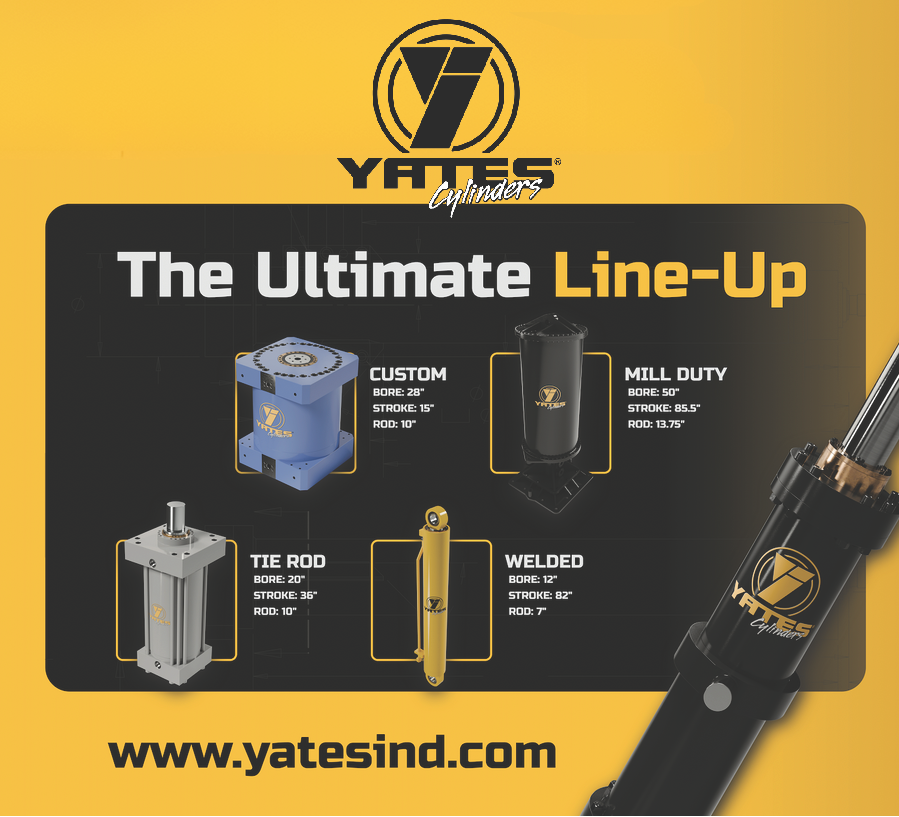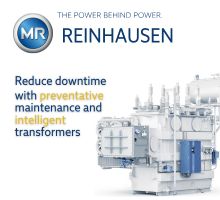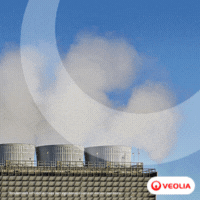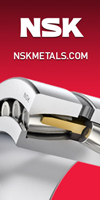voestalpine Gets Boost in Earnings Despite Slight Drop in Revenue
06/06/2013 - As it reported its earnings results for the 2012/2013 business year, the voestalpine Group also provided a somber outlook for its current business year due to the recessive trend in Europe, a bumpy recovery in the U.S., and continuing economic uncertainties in China.
The voestalpine Group’s slightly lower revenue in the business year 2012/13 that went from € 12.1 billion to € 11.5 billion (a drop of 4.4%) is due to the overall economic downtrend but is especially the result of lower pre-material costs. There were substantial price declines for iron ore and coke/coal, which were passed on to the customers.
On the earnings side, however, the steel-based technology and technology goods group recorded increases in all reporting categories compared to the previous year. The operating result (EBITDA) rose to € 1.45 billion; this corresponds to an increase of 11% (previous year: € 1.3 billion). With a 21% gain, profit from operations (EBIT) grew even more significantly, going from € 704 million in the previous year to € 854 million. As a result, the EBITDA margin went up from 10.8% to 12.5%, while the EBIT margin increased from 5.8% to 7.4%. Profit before tax rose by 30% compared to the previous year from € 504 million to € 655 million, while the profit for the period increased to € 522 million (a boost of 26% compared to the previous year’s figure of € 413 million). Earnings per share went up by 32% from € 1.98 to € 2.61. (With regard to the previous year’s figures, it should be noted that they contained negative non-recurring effects in the amount of € 205 million for provisions set aside for the rail antitrust proceedings in Germany and the closure of the standard rail production in Duisburg).
Earnings leadership expanded compared to industry competitors
“Considering the economic environment and in comparison to other companies in the industry, the performance of the voestalpine Group in the past business year was very satisfactory.“ -CEO Wolfgang Eder
A major reason for this achievement is the broad-based positioning of the Group, both geographically and with regard to its sectoral activities. It is especially the unique combination of steel production and processing and the increasing utilization of other materials, such as aluminum and titanium, that differentiate the Group more and more powerfully from the competition.
“In the last twelve years, we have developed from a classic steel company to a steel-based technology and industrial goods group that is focused on the most technologically sophisticated customer segments. The performance of the Group’s earnings—especially in a challenging economic environment—confirms that the strategy of extending the value chain based on premium steel products, which voestalpine has been pursuing consistently, was the right path to take.” -CEO Wolfgang Eder
Dramatic reduction of the gearing ratio; investment expenditures of € 852 million; headcount remains stable
Despite the difficult economic environment and an increase in investments by almost 50%, the gearing ratio (net financial debt in percent of equity) dropped from 53.5% to 44.5%. The significant improvement of the equity/debt ratio was achieved through an increase in equity on one hand (by 5% from € 4.8 billion to € 5.1 billion) and a reduction of net financial debt on the other (by 13% from € 2.6 billion to € 2.3 billion). The decline in debt by € 327 million is especially remarkable, as, at the same time, the Group’s investment expenditure was € 852 million (a boost of 48%) as it initiated the first steps in its implementation of the growth strategy 2020. At 46,400 employees (FTE), total headcount remained practically unchanged.
Long-term Group strategy is being consistently implemented
Ever since its IPO in 1995, but especially since the strategic realignment in the business year 2001/02, the voestalpine Group has consistently forged ahead with its strategy of value-added growth. This strategy has enabled the Group to take a leading position in Europe in its core segments both with regard to profitability as well as quality and technology; furthermore, it is a global market leader in major business segments. In order to expand this position consistently in the long term, the Supervisory Board of voestalpine AG approved the Group Strategy 2020 in December 2012. Growth will be focused on the technologically sophisticated growth industries of mobility and energy, where voestalpine is aiming for a leading position worldwide in its relevant business segments. Geographically, the focus is primarily on the growth markets outside of Europe. In Europe, the consolidation of voestalpine’s market, quality, and technology leadership in its core business segments will be at the forefront of its activities. Continued expansion of its processing operations, which are already dominating its activities, will be pursued systematically so that the Group's transformation from a steel company to a technology and industrial goods group will be even more pronounced.
Provisions for the closure of TSTG and the rail antitrust proceedings continue to be adequate
The provisions set aside in 2012 in the amount of € 205 million (for the antitrust proceedings and associated actions and costs as well as the closure of TSTG Schienen Technik) is still considered to be adequate. After the decision by the Management Board in the spring of 2012 to close the rail production of TSTG in Duisburg, the subsequent negotiations with the Works Council regarding a reconciliation of interests and a social compensation plan for the remaining roughly 350 employees were successfully concluded on May 16, 2013. The final closure will take place toward the end of the 2013 calendar year once all remaining orders have been fulfilled.
In the antitrust proceedings relative to railway superstructure material, in early July 2012, the German Federal Cartel Office (Bundeskartellamt) imposed fines totaling € 124.5 million on four manufacturers and suppliers of rails for having entered into anti-competitive agreements to the detriment of Deutsche Bahn AG. € 8.5 million of these fines were levied against companies belonging to the voestalpine Group. This means that the German Federal Cartel Office has thus confirmed voestalpine’s status of cooperating witness for the major part of the proceedings and the comparatively small fine concerns marginal segments only. Therefore, the antitrust proceedings involving for the most part Deutsche Bahn have now been resolved. After intensive negotiations, in late April 2013, an agreement was reached with Deutsche Bahn with regard to payment of compensation for damages for deliveries made under the rail cartel that are comprised in this portion of the proceedings.
Not least as a consequence of these antitrust proceedings, in 2012/13 comprehensive training measures were undertaken in all of the Group’s divisions within the scope of compliance management. For example, within the scope of a single web-based e-learning course alone more than 4,500 of the Group’s employees received training specifically on antitrust law and more than 18,000 employees received training on the Code of Conduct; both courses included a final test.
Somber outlook for the current business year 2013/14
According to the opinion of experts at the beginning of the year, after four and a half years of financial and economic crisis, 2013 was supposed to finally bring a turn for the better. The facts, however, showed a different picture, and they were confirmed by the recessive trend in Europe, a bumpy recovery in the USA, and continuing economic uncertainties in China. India continues to linger in a state of lethargy, and the result of Japan flooding its economy with money is completely uncertain; only Brazil has most recently shown a real trend toward recovery. In the meantime, the economic forecast for the year has been revised downward across the board—and that not just once. Against this backdrop, it appears quite improbable that the hoped for trend reversal will occur this year. It is increasingly unrealistic to hope for more than a temporary pickup of demand resulting from inventory cycle effects in individual industry segments.
In any case, indications for the next several months from the most important customer industries of the voestalpine Group point largely to a continuing cautious trend as far as demand is concerned. In the automobile industry, demand in non-European markets is for the most part still satisfactory; however, automobile production in Europe will continue to face a declining trend in the medium term. The main reasons are increased relocation of production facilities by a number of manufacturers to growth markets on one hand and, on the other, more restrained buying habits by European consumers due to the crisis.
In the energy sector, the uptick in new projects in the oil and natural gas production segments, which was anticipated for 2013, has for the most part failed to materialize; therefore, expectations are now focused on the second half of the year and hopes that a noticeable recovery in exploration and production will occur. Apart from China, there is no uptrend in sight in the second half of the year for the other conventional energy generation segments. The same applies to alternative energies, where the cutbacks of subsidies in many countries are making investments increasingly unprofitable.
In the energy sector, the uptick in new projects in the oil and natural gas production segments, which was anticipated for 2013, has for the most part failed to materialize; therefore, expectations are now focused on the second half of the year and hopes that a noticeable recovery in exploration and production will occur. Apart from China, there is no uptrend in sight in the second half of the year for the other conventional energy generation segments. The same applies to alternative energies, where the cutbacks of subsidies in many countries are making investments increasingly unprofitable.
The consumer goods, white goods, and electrical industries should see a relatively solid level of demand in 2013; the same applies to the mechanical engineering segment as well as the construction and agricultural machinery sectors. The aviation industry and the overseas railway sector continue to enjoy a high level of demand. Due to the budget restrictions confronting the public sector, only very modest growth rates are to be expected in Europe for years to come in the construction and construction supply industries; in the short term, a continuing recessive trend must be anticipated in Southern Europe. A continuing downward trend of the raw materials prices (iron ore, coal, coke) is expected.
“As far as the voestalpine Group is concerned, against the backdrop of continuing global uncertainty about future economic development, from today’s vantage point, we are anticipating an operating result (EBITDA) and profit from operations (EBIT) for the business year 2013/14 at about the same level as the past business year.“ - CEO Wolfgang Eder
The voestalpine Group is a steel-based technology and industrial goods group that operates worldwide. With 500 production and sales companies in more than 50 countries on five continents, the Group has been listed on the Vienna Stock Exchange since 1995. With its top-quality products, the Group is one of the leading partners to the automotive and consumer goods industries in Europe and to the oil and gas industries worldwide. The voestalpine Group is also the world market leader in turnout technology, special rails, tool steel, and special sections. In the business year 2012/13, the voestalpine Group reported revenue of more than € 11.5 billion and an operating result (EBITDA) of € 1.45 billion. It staffs roughly 46,400 employees worldwide.


.png?mediaprotectionhash=3750102d6e35cf158ae995d2a880e68af6bba8e3c74cb3bcacc2f4a4a71af45a&width=220&height=200&ext=.png)
-(1)-Reinhausen-(1).jpg?lang=en-US&ext=.jpg)




-Cutsforth.png?width=100&height=200&mediaprotectionhash=4482cb5f76125ba3348ab8851ab91d4ab118b35e517c017615489ff39c41f1af&ext=.png)